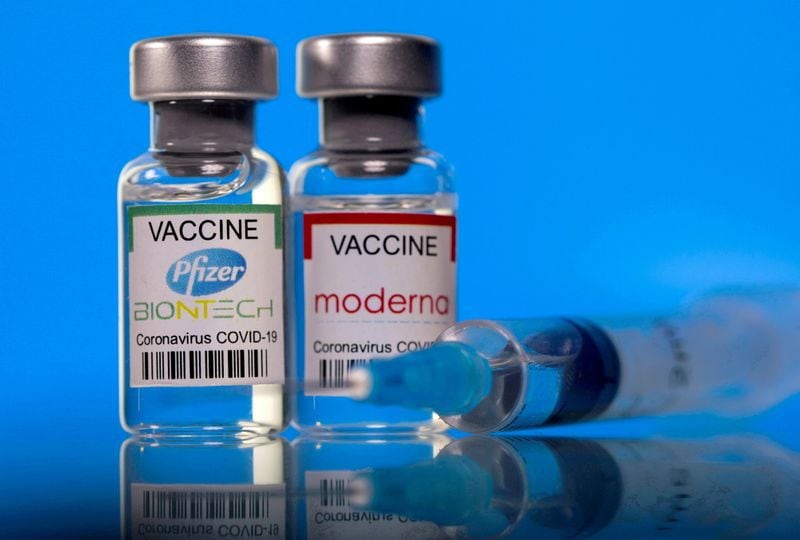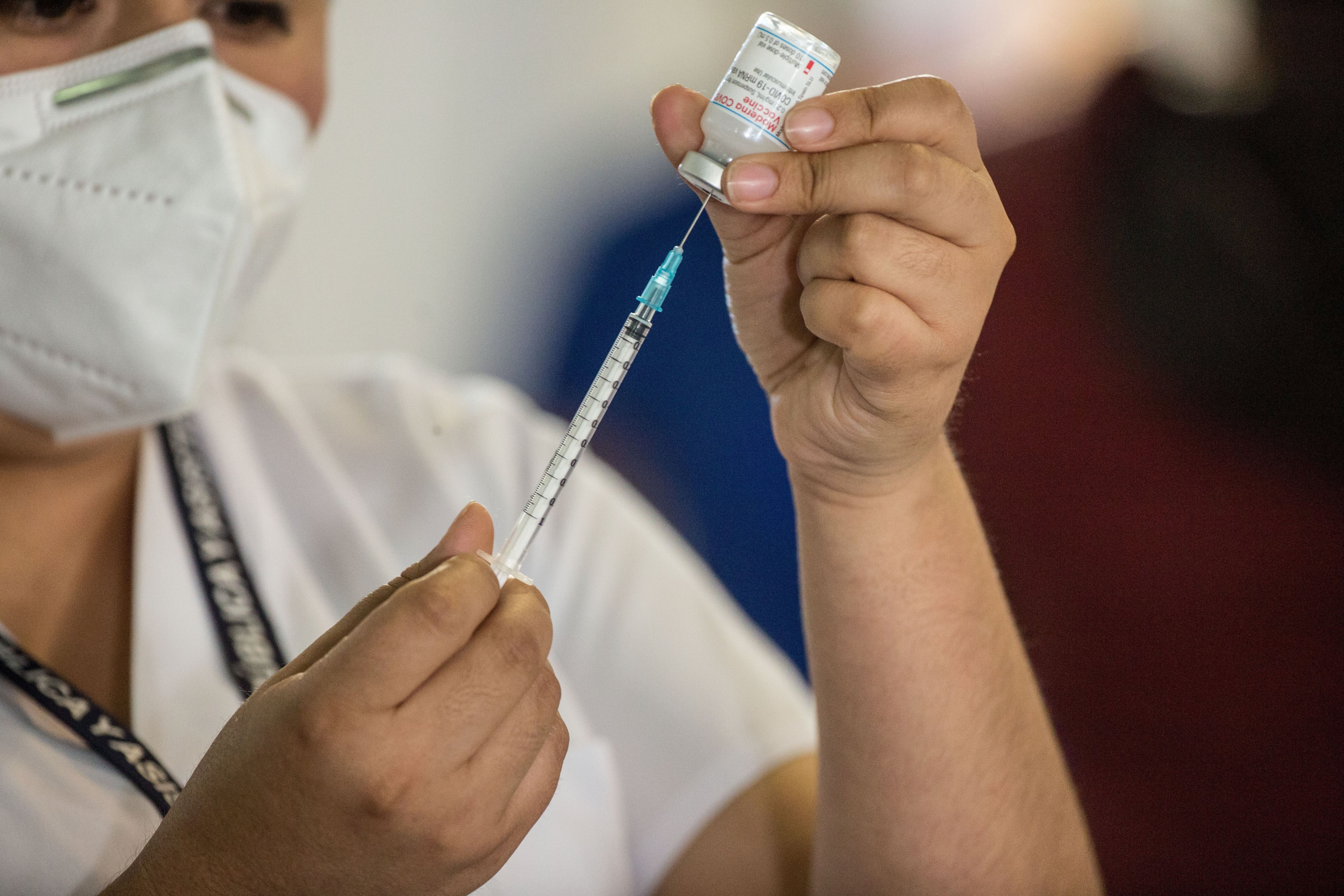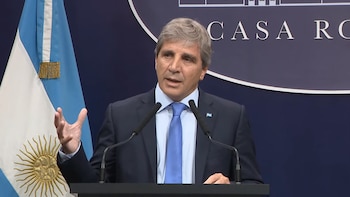
The Moderna laboratory sought approval from the U.S. Food and Drug Administration (FDA) for a second booster dose of the COVID-19 vaccine for all adults over 18 years of age. This order covers many more people than the previous Pfizer/BioNTech application for an emergency use authorization for people over 65 years of age.
The request is submitted in the midst of a heated debate over how long vaccines protect against contagion and whether repeated doses are necessary to prevent serious illnesses and death. Several countries, such as Israel, began to administer a fourth dose to adults, and there are data showing that the production of antibodies that fight infection has increased fivefold.
Authorizing a new dose of the messenger RNA vaccine for all adults would provide “flexibility” for the US Centers for Disease Control and Prevention (CDC) to decide on the appropriate use of a fourth dose, Moderna said in a statement. Widespread access would also allow health services to identify on an individual basis who could benefit from a second booster dose.
Experts in the US believe that chaos in booster applications could generate a messy and confusing debate about who needs a new dose and why. Both Moderna and Pfizer are also testing a specific booster dose of the Ómicron variant, the data of which could be available within weeks or months, creating the possibility that companies may seek regulatory approval for a specific Omicron vaccine shortly after current applications of the fourth dose.
Moderna did not go into detail about what information was included in her application, other than saying that it was based in part on recent US data. and Israel on the Omicron variant.

Pfizer, producer of the other messenger RNA vaccine, requested authorization for a second booster dose for older people in order to protect the most vulnerable as immunity provided by the first three doses decreases. It also noted that it based its request on data from Israel that concluding that giving a fourth dose to older adults at the height of the Omicron wave helped prevent infections and serious cases.
Real-world studies and data show that booster protection remains strong against serious illness and death, but decreases against infections after several months.
In a recent interview, Anthony S. Fauci, director of the National Institute of Allergy and Infectious Diseases, said that U.S. So far, US states show that protection against serious illness remains strong four to five months after a booster, dropping a little from 91 percent effectiveness in preventing serious illness to 78 percent.
The FDA's decision regarding the possible application of a fourth dose could come relatively quickly, especially if officials conclude that the data is straightforward and does not have to be reviewed by a panel of external vaccine experts. CDC advisors would then weigh who should be eligible for a second booster dose, and the CDC director would have the final say on those recommendations.
The Moderna two-dose vaccine received full FDA approval for adults last January after obtaining authorization for emergency use in December 2020. The FDA authorized a booster injection of messenger RNA vaccines in November.
“Real-world evidence continues to confirm the effectiveness and strong safety profile of the Moderna COVID-19 vaccine,” the company said in the statement.

A recent study by scientists at the Ragon Institute at Massachusetts General Hospital, Harvard University confirmed the effectiveness of boosters of messenger RNA vaccines against the Omicron variant of COVID-19.
According to the analysis published by specialists in the journal Cell, people who were inoculated with the two doses of Pfizer-BioNTech or Moderna and then a booster achieved a “potent” neutralization against the Ómicron variant. The same study found that the initial two-dose vaccine regimen does not produce antibodies capable of fully recognizing and neutralizing the new variant discovered in South Africa last November. In addition, they found that becoming infected with Ómicron after being vaccinated instead of being stimulated was not as effective. The booster created “substantially higher” antibodies than vaccination followed by infection.
KEEP READING
Últimas Noticias
Debanhi Escobar: they secured the motel where she was found lifeless in a cistern
Members of the Specialized Prosecutor's Office in Nuevo León secured the Nueva Castilla Motel as part of the investigations into the case

The oldest person in the world died at the age of 119
Kane Tanaka lived in Japan. She was born six months earlier than George Orwell, the same year that the Wright brothers first flew, and Marie Curie became the first woman to win a Nobel Prize

Macabre find in CDMX: they left a body bagged and tied in a taxi
The body was left in the back seats of the car. It was covered with black bags and tied with industrial tape
The eagles of America will face Manchester City in a duel of legends. Here are the details
The top Mexican football champion will play a match with Pep Guardiola's squad in the Lone Star Cup

Why is it good to bring dogs out to know the world when they are puppies
A so-called protection against the spread of diseases threatens the integral development of dogs




